Listen to the Quietus Albums of 2011 Spotify Playlist here
Although we’re sometimes the last to admit it, there are plenty of advantages to being a music fan in the post-Napster age. It’s hard to think of a time when access to music was greater (probably because there hasn’t been one). We don’t need to list the sources for music (physical, digital, stream, download) here but suffice to say it’s becoming more of a rarity to hear the complaint thrown around that it’s been "a bad year for music". This has probably always been a chimerical idea, but especially when seen from our vantage point in 2011. It’s actually an odd state of affairs that we’ve got more access to music that came out in 1971, 1981 and 1991 now than most of us would have done then. And while there are both positives and negatives attached to this (Simon Reynold’s excellent Retromania book has been key to the discussion of these and other matters recently) the idea that any year could be bad for music is simply redundant.
But, like Napoleon in Animal Farm, we are of the opinion that while all years in music are equally good, some are more equally good than others. Which is why we’ve expanded our top 40 to a top 50. And even then this wasn’t quite enough to include excellent albums by the likes of Brett Anderson, Wire, The Horrors, Zswishenwelt, FaltyDL… (See the foot of the article for the full list of albums voted for.)
Eagle-eyed readers will notice that there is a big difference between our half year list in July and this one. While opinions on albums change naturally over the course of a year, the big differences are mainly down to a change in staff at Quietus towers. While we were sorry to see trusty Quietus Staff Writer and yarg provider Ben Hewitt depart for the world of print press, we were delighted to welcome New Music Editor Rory Gibb on board. He has been responsible for introducing Luke and John to a massive amount of new music, some of which is featured prominently in the chart.
There was less consensus than ever on this year’s chart – a positive thing – even if it meant our own personal favourites were less likely to chart. In fact the only acts we all agreed on were Årabrot, Laurel Halo, PJ Harvey, Azari & III, Tim Hecker and The Haxan Cloak. (I’ve just noticed that this means Rory didn’t vote for The Fall – something that will probably lead to disciplinary action later in the month.)
So while this hasn’t been a classic year for mainstream music (one of the plenty of negative aspects of living in a post-Napster age is the fact that major labels are taking less risks than ever meaning their output is becoming even more stultifyingly conservative – with some glorious exceptions such as Let England Shake and On A Mission) elsewhere there is an embarrassment of riches. As always we’d encourage anyone who downloads any of these albums on the sly to buy a physical copy if they enjoy them. A rough show of hands reveals that 47 of these 50 albums are released on independent labels who haven’t, let’s face it, had the best of years.
50. Liturgy – Aesthethica

"At the risk of being burnt at the stake, the idea of ‘true Norwegian black metal’ these days is just that – an idea – and the only way the genre will survive with any credibility is via albums like Aesthethica, that, whilst stunningly capturing the hypnotic and hypnagogic relentlessness of black metal of old, is so firmly rooted in the now that it doesn’t sound like it was recorded in an oil drum half full of piss with a tone-deaf shepherd on production duties." Toby Cook
Read the Quietus review of Aesthethica
49. Amebix – Sonic Mass
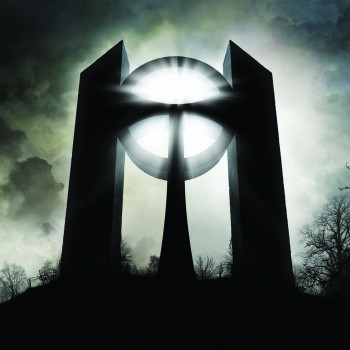
"Frontman and bassist Rob ‘The Baron’ Miller’s whispered, threatening vocals and trademark clanking bass line are heavily fore-grounded on ‘Days’, a stark and pensive opener that skillfully lays the ground for all that is to follow. The group’s longstanding advocacy of the epic has been successfully reawakened and finds itself realized in a resoundingly immersive series of brutally fierce songs that are best experienced as one headlong listening experience. Rob Miller’s occupation as a world renowned sword smith working in splendid isolation on the Isle of Skye cannot help but imbue perceptions of the album, so readily does the Amebix mythos confront you." Kevin McCaighy
Read the Quietus review of Sonic Mass
48. Byetone – Symeta

"So you want gratification? ‘Black Peace’ has that, alright, with one of the most exhilarating drops you’re likely to come across for a while. It begins with the panicked urgency of a Cylon Raider hopping on the spot, desperate for a pee, before a nasty snare and bass kicks in." Luke Turner
Read the Quietus review of Symeta
47. Mogwai – Hardcore Will Never Die, But You Will
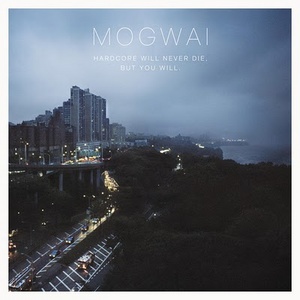
"It’s tempting to surmise that the title of Mogwai’s seventh album is a play on Tortoise’s Millions Now Living Will Never Die, yet another attempt to distance themselves from that accursed post-rock tag. For if there’s one thing that’s has characterised Mogwai in their decade and a half of racketeering, it’s this kind of mischief making." – Luke Turner
Read the Quietus review of Hardcore Will Never Die But You Will
46. Maria Minerva – Cabaret Cixous

"The first real clue as to the (surprisingly swift) progression of Minerva’s music comes with the album’s triumphant second track, ‘Pirate’s Tale’. Her lazy, nigh-on unintelligible vocals feel at once enclosed within and separate from the music they accompany, all woozy synthetic brass blowing a stately march above kitchen sink percussion. It also makes abundantly clear one of the album’s main musical reference points – and indeed, something much of the NNF roster are currently audibly fascinated by – dub. Beguiled by the studio’s manipulative charm, vocals, beats and individual instruments are stretched outward to fill a psychic space far wider than the physical space they were recorded within." Rory Gibb
Read the Quietus review of Cabaret Cixous
45. Skull Defekts ft. Daniel Higgs – Peer Amid
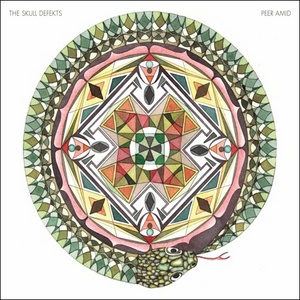
"Joachim Nordwall and Daniel Fagerstroem’s guitars still fire out buzzsaw riffs and crunching power chords, while Henrik Rylander and Jean-Louis Huhta cast a rhythmic voodoo spell over proceedings with hard-hitting motorik drumming and trance-inducing tribal percussion. There are also subtle glimpses of the analogue synths and fizzing electronics that have flavoured some of their more avant-garde releases, occasionally shining through the barrage of noise like shards of broken glass picked up by a cyclone – small reminders that the band are as adept at experimentation as they are at the kind of primal rock that dominates the album." – Michael Dix
Read the Quietus review of Peer Amid
44. Bjork – Biophilia

"The emotional and lyrical themes of each song neatly fit into their parent concepts; the idea of hormonal crisis and emotional rebirth here "as if the healthiest pastime is being in life-threatening circumstances / And once again being reborn" fits neatly with the cyclical repetition of lunar cycles or a sequencer. ‘Thunderbolt’ which muses on arpeggios, seeks the spark of life in a bolt of lightning, Bjork plotting and pleading "have I too often craved miracles?" over soft, ominous organ, then hit by inspiration in the form of a thrumming, jagged Tesla Coil, and the benediction of her close-harmonied Icelandic choirgirls as her formidable voice shoots for the stars and "universal intimacy"." Isobel George
Read the Quietus review of Biophilia
43. British Sea Power – Valhalla Dancehall

"British Sea Power are an anomaly amongst their contemporaries. In this era of hyper-consumption of culture they appear reassuringly old-fashioned – though not in the way you perhaps might expect. They’ve been around a decade, yet appear more enthusiastic towards their work than ever; they are ambitious, but not in the way most British guitar bands are. They don’t write hit singles and they wear the same clothes for entire tours. But as their recent road-mates the Manic Street Preachers noted, they are ‘an ideas band’. They confuse, enrapture, divide and inspire in equal parts, and Lord knows we need a band like this now more than ever." – Ben Myers
Read the Quietus review of Valhalla Dancehall
42. Wolves In The Throne Room – Celestial Lineage
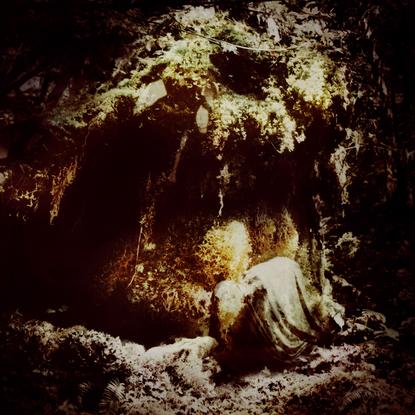
"Celestial Lineage is looking toward the future in a lot of ways. It’s definitely the most fully realized thing we’ve done. It’s the only record that I’m completely happy with. To me, it’s got a very astral vibe and energy to it. Two Hunters and Black Cascade are very Earth-oriented. The things we had in mind were the moss, the roots and the trees, and the animals that live around here, and the weather and the natural forces that human beings encounter in the Northwest. Celestial Lineage is more of a sky-gazing energy. It’s more about the stars and the moon, and the very different mindset that you have when you orient your attention upwards towards the heavens rather than downward towards the bowels of the Earth." Aaron Weaver
Read the Quietus feature on Celestial Lineage
41. Thurston Moore – Demolished Thoughts

"Sonic Youth unplugged would be an easy narrative to slap on Demolished Thoughts but Moore ably steps beyond his familiar tricks here to create something forward thinking yet far warmer and accessible than normally expected from the noisenik don. Having toyed with the idea on ‘Honest James’ from 2007 solo outing Trees Outside The Academy, opener ‘Benediction’ surrenders itself fully to the pastoral with a bucolic wave of gentle melody and a lush array of strings. It’s an approach that wouldn’t feel out of place on Beck’s Sea Change and it’s evident that the producer’s hand has helped guide and steer Moore away from his usual indulgences while simultaneously playing to the 52-year-old’s maverick strengths." – Charles Ubaghs
Read the Quietus review of Demolished Thoughts
40. The Master Musicians Of Bukkake – Totem Three
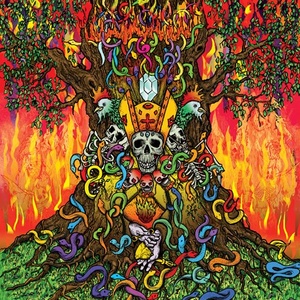
"The trilogy started as an artwork concept, actually. And I thought we can’t have this tree of the religion of the future be one panel, that won’t work. So what we could do would be three. The whole concept changed and morphed a lot. I kind of knew what the narrative was going to be about, and we had talked pretty in depth about where it was going to head, but we didn’t know what all the music was going to be. There were some song titles that followed a thread based on this Hindu mythology of Kali Yuga and a French writer named René Guénon, who wrote a lot of books in the early 1900s about the rise of the New Age. So the whole Totem trilogy is about, obliquely in a way, the rise of this synthetic religion, and the failure of everyone to see that what really mattered was being replaced with this synthetic version – and everyone sort of being ok with that happening." Randall Dunn
Read the Quietus feature on Totem Three
39. Aidan Moffat & Bill Wells – Everything Is Getting Older

"Together, the pair have made an album that deals unashamedly with the most taboo subject in rock and pop – getting old. It seems that you can write about all the sex, violence and blasphemy you like, but real life is the one thing that still has the power to shock. When Aidan asks, "can you hear the creak of my weak knee?" the temptation is to laugh, to treat it as comedy. But the themes of aging and gradual physical decrepitude are just as valid a subject for the serious singer-songwriter as the angst and energy of youth. And one can forgive the occasional dip into barroom sentimentality- as on penultimate track, ‘The Greatest Story Ever Told’- for the willingness to explore, without flinching or hiding behind blokeish, Nick Hornby-esque platitudes, the potentially rich landscape of modern middle age." Ben Graham
Read the Quietus review of Everything Is Getting Older
38. Elzhi – Elmatic

"Elzhi is a former MC for the Detroit collective Slum Village, who has versioned the entire album to produce Elmatic. He has worked in conjunction with superb funk outfit Will Sessions and is helped by guest spots from fellow Motor City rapper Royce da 5’9” and original Illmatic beat maker Pete Rock. Lyrically, Elzhi stamps his mark all over it, giving it a contemporary, Detroit spin. Of course, when you think about it, hip hop is a less conservative art form than rock so no number of comparisons like Baroness covering Nevermind or whatever is ever going to give a clear picture of what this is, when the fluidity of hip hop culture – which it shares with other forms such as jazz and reggae – means an update, reboot, or rework of a standard does not feel like such a strange a thing at all." John Doran
37. Obake – Obake

"Eraldo Bernocchi, the sound engineer and owner of Rare Noise records provides guitars, which range from full on doom and black metal assault to barely existent whispers and tendrils of ambient feedback. Massimo Pupillo, the bassist from blistering jazz metal trio, Zu carves out chunks of space in the mix with his fat low end. Vocalist and keyboard player Lorenzo Esposito Fornasari twists his vocal cords into baroque shapes in order to find affecting shifts in gear, from necrotic deathly growls to a sinister croon to multi-tracked Ligeti (dis)harmony to full operatic tenor. The only member not from Italy is Hungarian drummer Balazs Pandi who is probably the most well known outside of his native country having worked with Venetian Snares, Zu, Merzbow, Wormskull and the Killimanjaro Darkjazz Ensemble. Here his job is not so much anchoring the foot of the tornado as whipping it up into even faster and more erratic patterns." Luke Turner
Read the Quietus review of Obake
36. Clams Casino – Instrumentals

"Similarly to the likes of Laurel Halo and Dan Lopatin, Clams’ music is predominantly made up of synth: huge, rippling curtains of the stuff, with the contradictory property of sounding simultaneously impenetrably dense and almost totally weightless. Opener ‘Motivation’ explodes into action in peaking-in-the-red mode, its droning bursts of sub-bass distorting into a grainy haze as they hit full volume. Despite its colossal force, though, its physical impact is unexpectedly soothing, a balmy wash like standing waist-deep in tropical seawater." Rory Gibb
Read the Quietus review of Instrumentals
35. Snowman – Absence
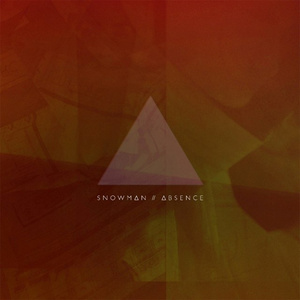
"A record that stands as an epitaph to Snowman, the Australian/London group who disbanded shortly after the recording and release, with Ross DiBlasio and Olga Hermanniusson vanishing into the northerly mists of Iceland. It sounds like an epitaph, too, white marble gothic grandiosity, a great fog of atmospherics through which tree branch rhythms extend, and inside which spectral vocals hover and swirl. We’d advise listening to this as a companion piece to My Disco’s Little Joy, found elsewhere on this list." Luke Turner
34. Fucked Up – David Comes To Life
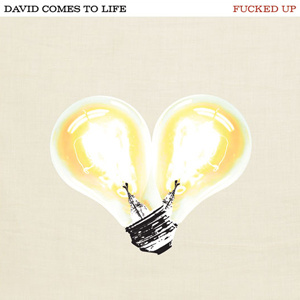
"As an album, David certainly works better than the last time a major punk band (we’re looking at you, Green Day) attempted to pull off the rock opera concept. Aside from its length (almost a hour and 20 minutes) there is little in the way of self-indulgence, and coming from a group that think nothing of cranking out fifteen-minute singles including flutes, whistling and lengthy drum solos the back-to-basics approach is quite refreshing. That said, FU’s idea of ‘basic’ is hardly stripped back, as evidenced by guest spots from Kurt Vile, the Vivian Girls, Jennifer Castle and Cults’ Maddy Follin, or Mike Haliechuk, Josh Zucker and Ben Cook’s symphonic three-pronged guitar attack, and it’s this ‘wall of sound’ approach that is key to the album’s success." Michael Dix
Read the Quietus review of David Comes To Life
33. Zun Zun Egui – Katang

"Before this album we’d done three experimental EPs, but with Katang we said, ‘We’re going to sit down and listen to it ourselves, and have it as an experience.’ Many have had this idea before of course. I listened to an interview with Ed O’Brien and Jonny Greenwood where they said it’s interesting to listen to your music with a lot of distance. So we sat down and listened to our songs and just decided whether we liked it or not. If we didn’t then something had to change. We didn’t do anything that was forced, or wasn’t gelling. We wanted to push boundaries, but [then] we also wanted to make some cool fucking songs. We aren’t trying to be clever all the time and artists can be quite pretentious sometimes, in the sense that they believe the public or the listener has to make all the effort. For me, in terms of art, music is about communication." Kushal Gaya
Read the Quietus feature on Katang
32. The Fall – Ersatz GB
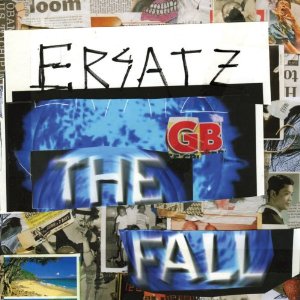
"Even younger standard bearers for purportedly leftfield music don’t escape Smith’s ire. The best track on here by a country mile is the vicious ‘Greenway’. The development of the track can be watched in innumerable live clips on YouTube, which combine to reveal that the track is a sucker-punch to These New Puritans. Built over a mastodon riff, Smith snarls about "Jason" (he’s previously referred to Jack Barnett as "Jason from These New Puritans" at live outings of the song): "channel hopping the other day to Danish rock TV / I noticed a video with a person who bore a remarkable resemblance to myself". In the song, Smith recounts a visit to These New Puritans’ hotel room, where the group, afraid, have chairs piled up against the door. "Their tone was snotty and offensive" Smith growls and, infuriated, shouts "to relax I killed my cat" then, bizarrely, "I had to wank off the cat to feed the fucking dog." Luke Turner
Read the Quietus review of Ersatz GB
31. Battles – Gloss Drop

"[Tyondai] Braxton’s absence on vocals is redressed by four guests. The big name is Gary Numan, found amidst the dystopic, race-for-the-train clatter of ‘My Machines’. Kazu Makino enjoys a cute and breathy turn on the springy ‘Sweetie & Shag’, contrasting with the oddest vocal of the lot: Yamantaka Eye on closing track ‘Sundome’. Here it’s as if Battles set out to cross Leftfield’s ‘Afrika Shox’ with an ice-hockey arcade game. Gloss Drop is packed with ideas, but instead of clambering over one another the riffs, rhythms and basslines co-operate more gracefully, with a greater degree of harmony." – Kiran Acharya
Read the Quietus review of Gloss Drop
30. Roly Porter – Aftertime
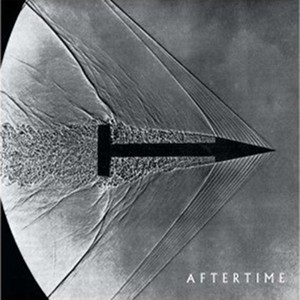
"His tremendous solo debut works with similar moods and textures, but is almost entirely beatless; the result evokes the wasteland left after Vex’d scorched the earth. Largely featureless, save gales of (acoustic, recorded) violin that blow across its surface, it’s stark and underpinned by the rumble of infernal machinery. In its ambivalent attitude towards technology and industry, it fits neatly alongside Roll The Dice’s recent In Dust album, but forsakes forward momentum for tense, perpetual stasis. What makes it such a thrilling listen, though, is its changeability. Like Ben Frost’s By The Throat, there are elemental forces at work here: album highlight ‘Geidi Prime’ begins as a soothing lullaby before descending into a hellish maelstrom of cracked electronics and depth charge kickdrums, and ‘Corrin’ ascends into a glorious, towering harmonised drone, even as sub-bass roils away just beneath. A brilliant, bracing record." Rory Gibb
Read the Quietus review of Aftertime
29. Destroyer – Kaputt
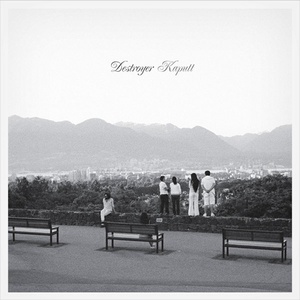
"From the glitchy, almost tactile opening bars of ‘Chinatown’, the first track from Dan Bejar’s new record Kaputt, you can sense a sea change of sorts for Destroyer. In part it is the moulding of a radiantly new soundscape that borrows from a romantic art pop palette, referencing everyone from Roxy Music (especially the faraway sounding brass sections on so many of the songs) to Morrissey and his mournfully wry lyrics, with Bejar at times almost inhabiting the ‘permanent figure of jacked up sorrow’ writing poetry for himself that he sings of in ‘Blue Eyes’." – Siobhán Kane
Read the Quietus review of Kaputt
28. Yob – Atma
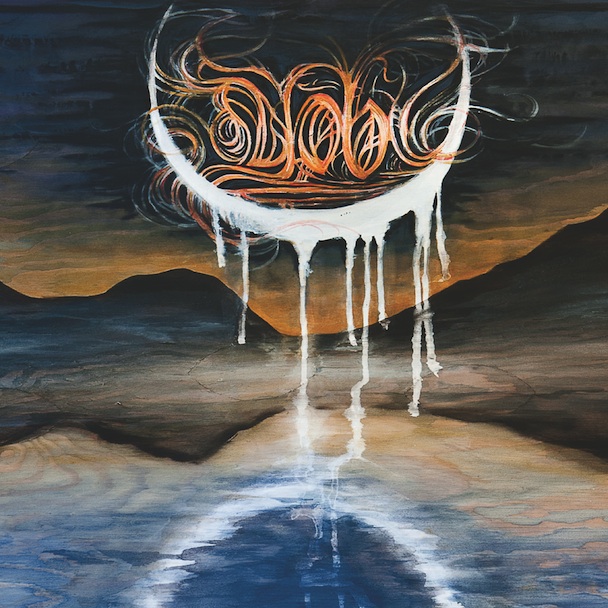
"The unbelievably detailed grain of Mike Scheidt’s vocals is what raises Yob from being a merely great doom rock band to a stupendous one. When the band started in Portland, Oregon at the turn of the Century they initially envisaged themselves as an amped-up classic act with clean vocals lying somewhere in the unclaimed territory between Pentagram and Sleep. He soon abandoned this idea however and started working on a technique that was part Rob Halford, part Ozzy Osbourne, part Janis Joplin, part Jason Mendonca, but all angry Easter Island statue shouting at the moon." John Doran
27. EMA – Past Life Martyred Saints

"It must be a common enough feeling to go through your teenage years in a small town, yearning to escape the petty-mindedness, violence and boredom, just to hit the big city in your twenties and discover that you don’t fit in there either. To discover the streets are paved with dogshit, not gold. ‘Fuck California’, sings Erika M Anderson balefully on this quietly astounding debut album, in a dedication to her adoptive West Coast home, ‘you made me boring.’ The opening track of Past Life Martyred Saints (‘California’) pinpoints what EMA – who was born and bred in South Dakota – is really brilliant at; writing songs capturing life’s big shifts, tapping all the unruly emotions dredged up for all they are worth. A realisation that comes too late in life to be of any use is twice as bittersweet – it is palpable how much EMA (or perhaps the voice she’s giving life to) is undergoing some kind of negative epiphany during this song." – John Doran
Read the Quietus review of Past Life Martyred Saints
26. Leyland Kirby – Eager To Tear Apart The Stars
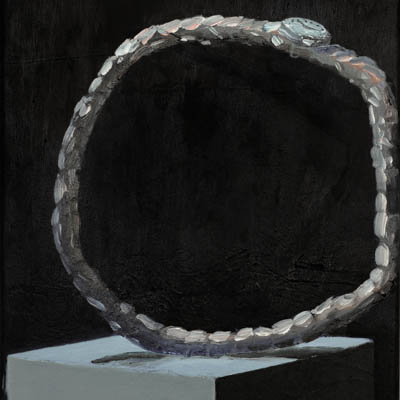
"In lesser hands, such a deliberately overwrought approach would (and has) quickly become maudlin. ‘This Is The Story Of Paradise Lost’ tugs remorselessly at the heart-strings, drifting as it does on a sea of piano notes that would have gladly been seized upon by Mahler or Satie. But the track, a nine-minute funereal masterpiece, follows hot on the heels of the discordant opener ‘The Arrow of Time;, which sets a tone that goes beyond sadness and into the sinister and introspective environs of dark ambient. Yet even if ‘This Is The Story Of Paradise Lost’ juxtaposes its mournful piano with rumbling electronic effects, a dusty crackle and hazy synth patterns." Joseph Burnett
Read the Quietus review of Eager To Tear Apart The Stars
25. Hype Williams – One Nation
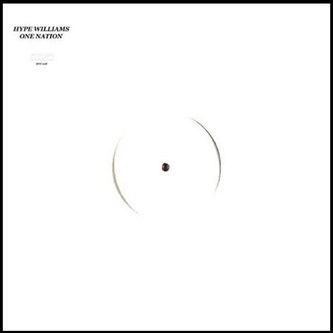
"The same deadpan appropriation of pop culture remains central to their new album One Nation. Tracks are named after Wiley bars (‘Your Girl Smells Chung When She Wears Dior’), humanity is still largely generated by a grainy mesh of samples nicked from self-help videos and YouTube (‘Dragon Stout’; ‘Untitled (And Your Batty’s So Round’). In the past it felt as though all these disparate sounds and spaces hadn’t quite gelled, and you could still examine the seams where the stitches hadn’t healed properly. But One Nation takes impressive steps towards a wholly coherent Hype Williams ‘sound’; there’s nothing particularly new here per se, and little that couldn’t have slotted neatly into any of their previous releases, but everything feels better integrated. The album’s compositions themselves are starker and often strikingly beautiful. Its title matches this new self-assured beast perfectly, as well as neatly (intentionally?) referring outward to a single, net-connected musical world." Rory Gibb
Read the Quietus review of One Nation
24. Uncle Acid And The Deadbeats – Blood Lust
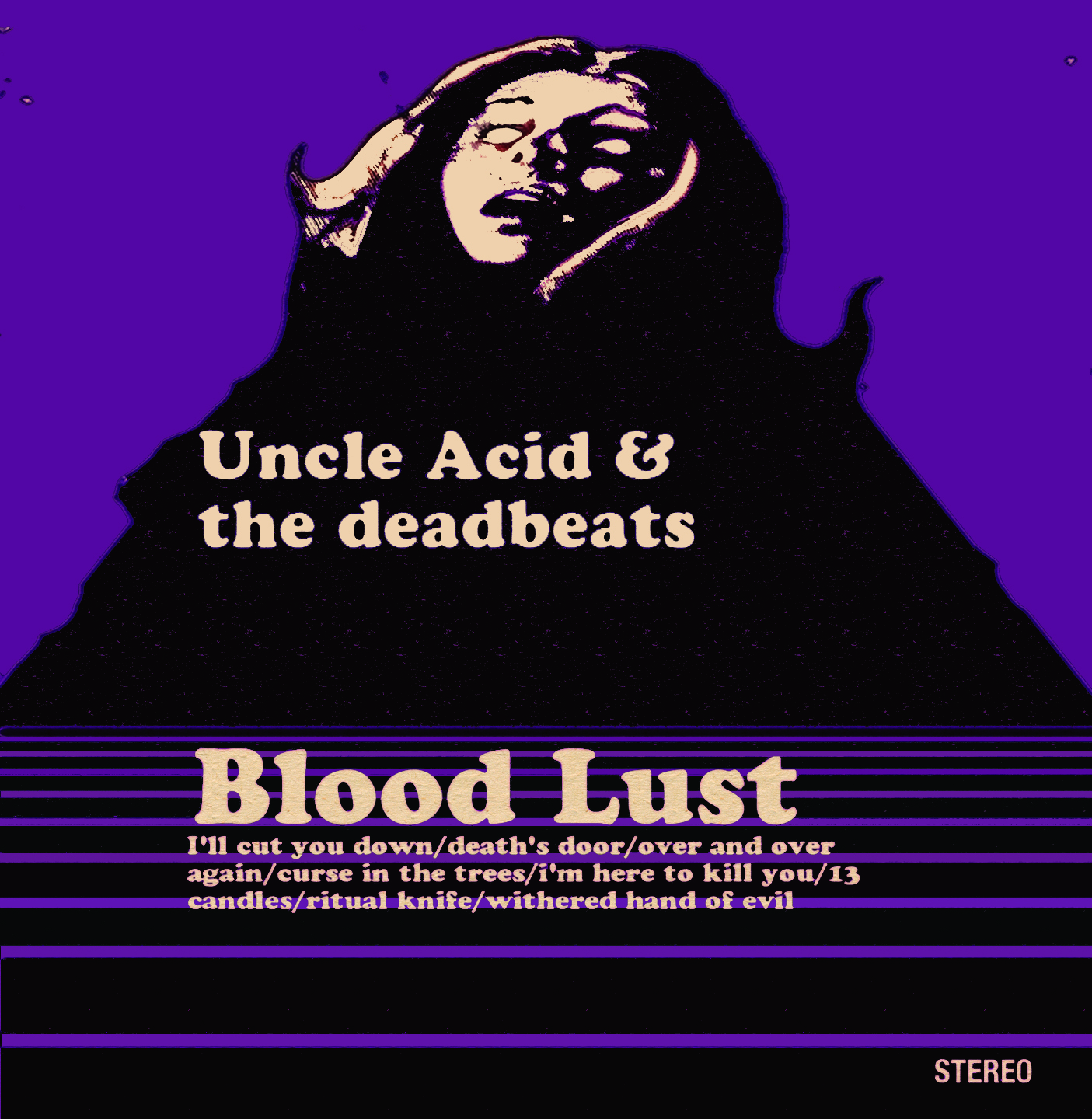
"With Blood Lust Uncle Acid & The Deadbeats live up to their name. Violent, druggy and hammy, its nine tracks – thick, groovy, riff-driven things, practically dripping with THC – are recorded in brow-beaten low-fidelity for an appropriately cracked, B-movie sort of feel. Blood Lust‘s production couldn’t be a better match for the songs themselves – the drums have half-vanished somewhere in the depths of the mix, drowning behind angry wasp buzz of guitar and razor vocals. It lends everything a driving sense of urgency, even when the band slow everything to a doom metal trudge on ‘Curse In The Trees’. An exhilarating listen, one prone to shifting pace on a sixpence, and one gifted with an almighty closer in the shape of lumbering, heavy-lidded beast ‘Withered Hand Of Evil’." Rory Gibb
23. Frank Ocean – Nostalgia/Ultra

"It’s kind of neither here or there that Nostalgia, Ultra (set to get a physical release in July via Frank Ocean’s label Def Jam, who slept on him until OFWGKTA blew up this year) towers over the mainly disastrous Goblin. It does speak volumes however that he, managed to put something together for next to no money that reminds one of Steely Dan, Prince, The-Dream and Pharrell all at the same time. It’s no wonder that this sublime collection of smooth, funny and smart tracks has seen him go from an also-ran (as a vocalist rather than song writer) to working with Jay-Z and Kanye West." – John Doran
Read the Quietus feature on Frank Ocean
22. My Disco – Little Joy

"These guys certainly recognise the joy of repetition, unleashing wave after wave of percussive intensity on album highlights like ‘Young’, extended jams that build and build until the point of ecstatic release. Melbourne might be a long way from Detroit or Chicago, but Little Joy‘s place in the lineage of great dance music is unquestionable." Michael Dix
Read the Quietus review of Little Joy
21. John Foxx & The Maths – Interplay

"After a run of relatively oblique collaborations, Interplay sees John Foxx’s return to the role of pop architect, ably assisted by The Maths (aka Ben Edwards, Benge), who has graduated here with flying colours from studied technologist to certified song producer. With his memory banks reset by Edwards’ box of retro delights, Foxx has taken the opportunity to reassert the grand arches of the mind on the pop of his salad days – a formula which rapidly became intellectually superficial and increasingly less expressive in his wake." – John Calvert
Read the Quietus review of Interplay
20. Cornershop & Bubbley Kaur – The Double O Groove
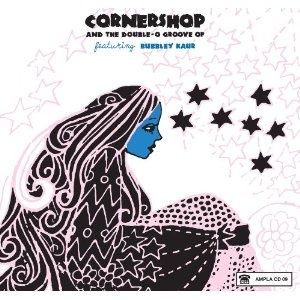
"From the first break the album is audibly Cornershop, which is odd given that it doesn’t feature frontman Tjinder Singh on vocals once. Up front instead is Bubbley Kaur, an old friend of Singh’s whose lyrics are delivered entirely in Punjabi. The New Delhi-born, Preston based housewife was introduced to the singer by a taxi driver friend. On meeting, they realized that they’d met at a party some years previously and discussed their mutual love of Punjabi folk music. Kaur a mother and launderette operative hadn’t heard much in the way of Western pop and rock music, let alone anything by Cornershop… something that probably made her ideal for this project. The first song from this partnership was ‘Topknot’, the sublime John Peel favourite, which, in any sane world, should have given them another globe bestriding hit. They realized the combination was a good one however and have been working on The Double O Groove pretty much since." John Doran
Read the Quietus feature on The Double O Groove
19. Oneohtrix Point Never – Replica

"Replica, then, marks a kind of transition. It finds Lopatin moving away from these huge, propulsive productions towards a more fragmented and sprawling approach, although those expertly judged, eerie atmospherics remain intact. Opener ‘Andro’ is a good example, beginning on familiar territory with its spiraling melody and heavenly voices straight out the prayer room of Eno’s Music For Airports, before it dives off to somewhere far darker. The threat of noise looms heavily at the edges of the other two albums – here it finally arrives in a huge, seething wave. Suddenly you’re lost in a fever-dream jungle, complete with pulsating percussion, indecipherable voices and shrieking birds overhead. Bursts of noise and blizzards of static are to be expected from Lopatin, – he began by making evil-sounding music and he still sticks to the motto, "everything is noise", a remnant from his days in the abrasive underground." Charlie Hale
Read the Quietus review of Replica
18. Mastodon – The Hunter
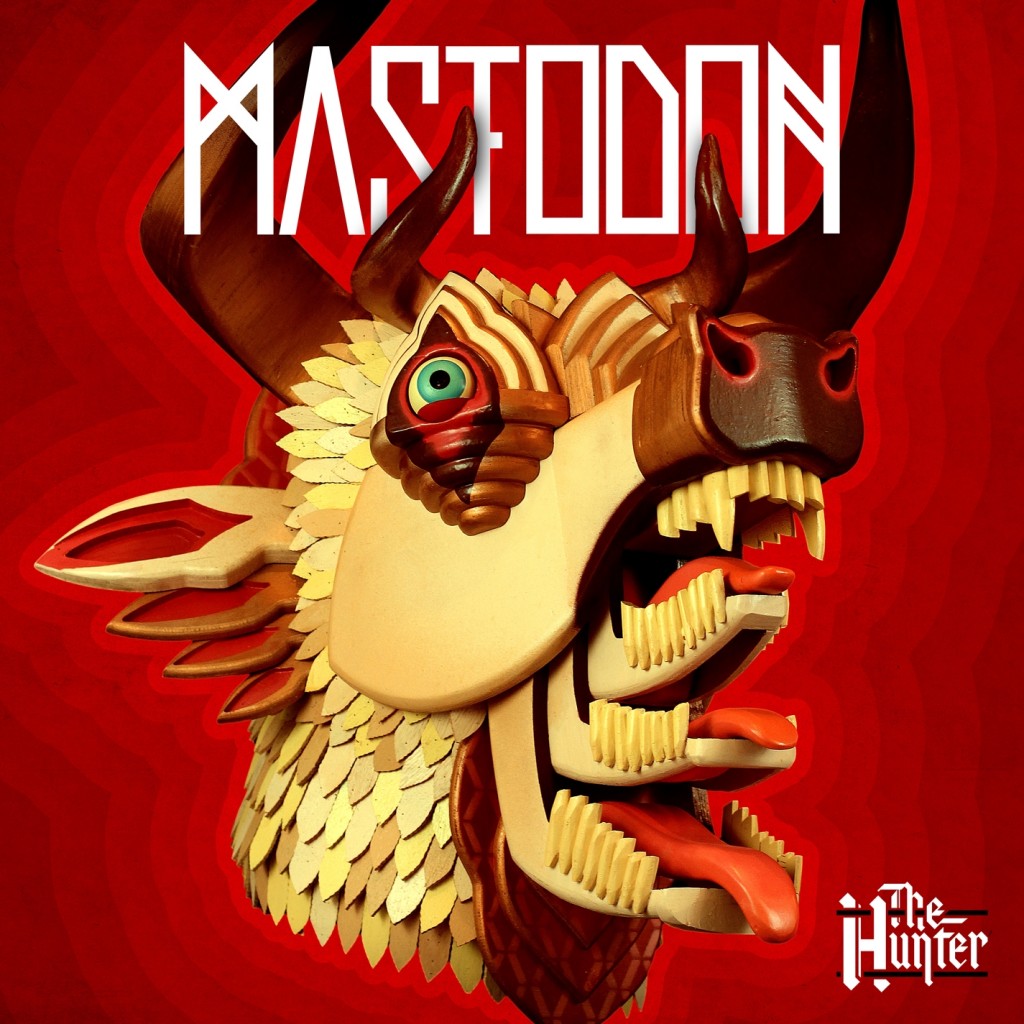
"Free from thematic constraints and genre demands for excessive displays of virtuosity, ironically they have been given the space to really flex their muscles. The down home ZZ Top boogie of ‘Curl Of The Burl’ – a song concerning drug-addicted woodsmen looking for interesting pine knots, doing fat lines of sawdust before going on an arboreal sexual rampage – is balanced out by two of the heaviest, face melting numbers they have recorded since leaving Relapse (‘Blasteroid’ and ‘Spectrelight’). ‘All The Heavy Lifting’ looks back to some prime doom, and by that we don’t mean to Black Sabbath or Pentagram but to Mussorgsky’s ‘Night On Bald Mountain’ or Gustav Holst’s ‘Mars’, as played by King Crimson." John Doran
Read the Quietus review of The Hunter
17. Pinch & Shackleton – Pinch & Shackleton

"But what makes this such a fascinating and important record is that it’s far from being a straight up Shackleton album. Ellis’ presence in the music here is subtle but vital – he exercises a great deal of restraint, holding the music poised distant from the manic intensity of Shack’s recent output. For the most part Pinch & Shackleton lacks the quivering mid-range drones that whip across the latter’s music. Instead, their collaborative efforts set feather-light high end – rolling congas, whistling melodies – across a droning raft of low end, evocative of a landscape that’s flat from horizon to horizon. At times, too, it’s closely attuned to dub’s love of studio trickery. ‘Levitation’ and ‘Torn & Submerged’ are both more spacious than anything either producer has made before – ‘Torn…’ in particular is a huge canyon violently ripped into the album’s otherwise rather uniform topography." Rory Gibb
Read the Quietus review of Pinch & Shackleton
16. Alexander Tucker – Dorwytch

"Kent-born multi-instrumentalist Alexander Tucker has released a monumental album in Dorwytch. Even compared to 2005’s Old Fog, this is a record that people should be talking about. Or rather, it’s a record that should be making people shut up and listen. When we first played this in the office initially it was the tunes that we loved. A week of afternoons was brightened considerably by the insistent cello-folk of ‘His Arm Has Grown Long’; the gentle fingerpicking of ‘Red String’; the chiming lullaby of ‘Matter’; the lightly sun dappled English prettiness of ‘Hose’; and so on and so forth. But it was only when I got it home to a pair of monolithic 1970s stereo speakers that it transformed into a pool of potential deep listening. A relatively still surface daring you to dive in, its sharp, cold depth containing bindweed, or maybe worse… things that threaten to drag you under, away from surface beauty into a totally different, forbidding world." – John Doran
Read the Quietus review of Dorwytch
15. Cold Cave – Cherish The Light Years
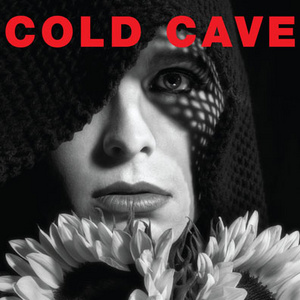
"One listen to ‘The Great Pan Is Dead’, the opening track to Cold Cave’s Cherish The Light Years confirms that Cold Cave are more than capable of proving themselves to the doubters, those who perhaps saw Wesley Eisold’s group as a quick-fix sugar rush for the sunglasses-at-night hipster crowd, and who branded him a ‘new young god of nihilism and despair’. Whereas Love Comes Close was a resolutely DIY affair, its follow-up is – in comparison – a big budget production (helmed by TV On The Radio/Beach House/Yeah Yeah Yeahs knob-twiddler Chris Coady) with an ensemble cast, and ‘Pan’ is a bona-fide ‘Born To Run’-sized anthem. Combining programmed jackhammer beats and live percussion, strafing synths, guitars and strings, it’s a 21st Century electro-punk reboot of Springsteen’s own Wall Of Sound update; a fist-pumping chant-along with a killer hook, and the most thrilling song of the year so far." – Michael Dix
Read the Quietus review of Cherish The Light Years
14. John Maus – We Must Become The Pitiless Censors Of Ourselves

"Maus is part of the never generation – the pale mutiny of the dispossessed voidoids’ hatched in a misty somewhere between fictive and mundane – as recounted on ‘Quantum Leap’ "A dead zone is a sign of the times, yeah". H-pop is underground dissent by memory – as if the rot runs so deep that our memory is the last haven amidst what Gibson refers to as the "endless digital now". The more unsure the listener is of the exact spatial provenance of Maus’ recordings, the further into this liminal hinterland they go: deeper into Neal Cassidy’s second America, The Network, Cyberia, The Fourfold or what Ariel Pink refers to simply as True Love. Indeed, some 30 or so years after The Radiophonic Workshop entered the the 4th Dimension, Maus’ implacable domain sounds just that – a 4th dimension. Its atemporal feel and overall state of being – a queasy type of dyschromia – communicates eternity and infinity more effectively than all the efforts of Yes, Genesis and ten Spaceman 3’s combined. It seems cosmic cyberpunk and hypnogogia make a perfect match." John Calvert
Read the Quietus review of We Must Become The Pitiless Censors Of Ourselves
13. Sandwell District – Feed Forward
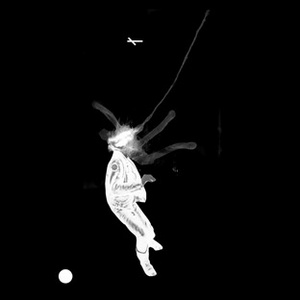
"As we pointed out when it achieved a similar placing in our halfway-through-year list, Sandwell District’s Feed Forward actually emerged at the very end of 2010 and missed that year’s list. Given that it’s so thoroughly infiltrated our listening over the last twelve months, it would seem criminal not to include it. Product of the enigmatic label collective of Regis, Function and Silent Servant, Feed Forward – released in a blink-and-you’ll-miss-it vinyl-only run of 300 – feels less like a collection of the imprint’s dancefloor tracks than a whole, unusually coherent techno album. And in a year when a growing number of British electronic musicians are revisiting early industrial and the noisy ends of post-punk (how appropriate, for this new age of austerity we find ourselves plunged into), few have melded the textures of the past with the mood of now with such brutal, immersive efficiency." Rory Gibb
12. Laurel Halo – Hour Logic
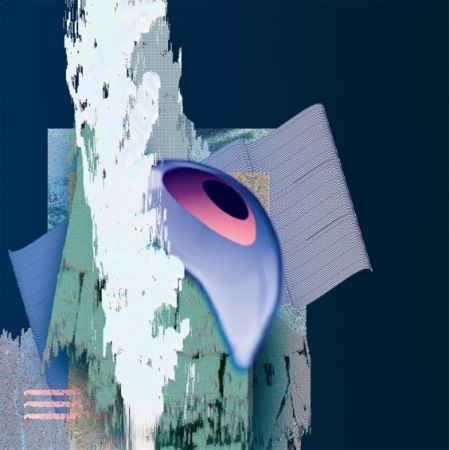
"One thing I really enjoy is going on YouTube and listening to playlists, just listening to track after track. And a problem with dance music is that everything sounds the same – if you’re listening in a genre-specific way, everybody uses the same chords, the same drum sounds, everybody has a minute of intro so you can mix it in, everybody has a few chillout sections in the middle, everybody has a little outro. It gets kind of boring to listen to after a while. But then you have that moment of joy when you find that one track out of 200 that throws you completely. It’s awesome when people use cuts and jumps, when there are really awkward slices. Anything that just breaks from your expectation is what excites me." Laurel Halo
Read the Quietus feature on Hour Logic
11. Årabrot – Solar Anus

"The alchemical theme of the album is highlighted on the title track not just by the forging of high and low culture but with an Amebix-like compound of punk and metal that doesn’t lose any power from either genre by the fusion. I’ve said it before and I’ll keep on saying it until someone pays attention – if you’ve ever read Michael Azerrad’s Our Band Could Be Your Life about the rich history of the American rock underground of the 1980s and found yourself thinking, ‘Goddamn, why don’t we have bands like Big Black, the Butthole Surfers or Fugazi anymore?’ then Årabrot are for you. This is not to say that they are gnarly 1980s retro merchants like the phalanx of MBV and Sonic Youth copyists that litter small labels at the moment. Instead, they have a similarly radical outlook on making bracing, violent, forward-looking and potentially life-changing art." John Doran
Read the Quietus review of Solar Anus
10. Prurient – Bermuda Drain
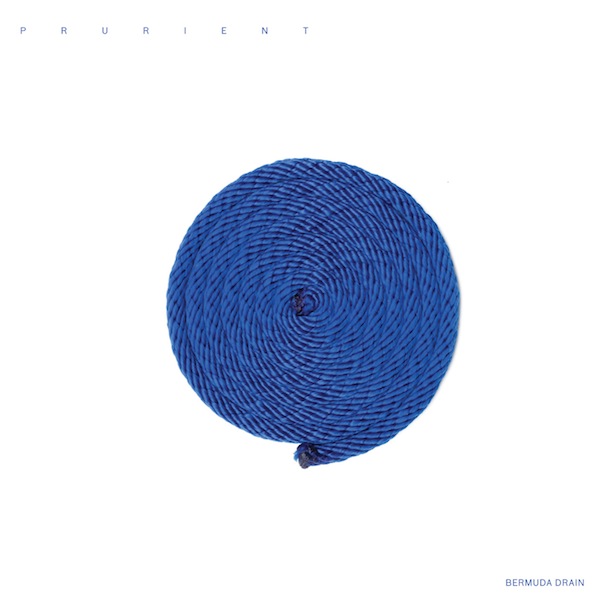
"Noise is a flawed concept, entirely subjective. Far better is contrast, the juxtaposition of sonics, texture and mood to create a palette that, while dark, can still paint an evocative picture, and give room to wallow in emotional dregs. This is what Fernow has achieved on Bermuda Drain. There is humour in the void. Back to New York, March 2011. Speaking about his close, unique friendship with Fernow, Wesley Eisold said, with an urbane chuckle, "On Valentine’s Day Dominick and I found ourselves sat in a shitty bar looking at pictures of electric chairs for an hour." Fernow instantly replied: ‘Then we realised this is why we’re alone.’" Luke Turner
Read the Quietus review of Bermuda Drain
9. Death Grips – Ex Military
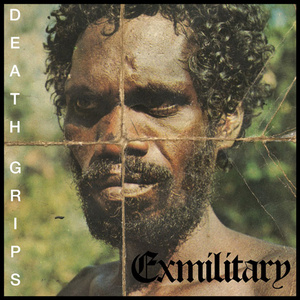
"This is a funhouse, bulbous with danceable heaviosity and sick bass permutations but built from the molecular facts of post-techno. It’s a rocking firestorm forged in cold logic: procedural, binary, black and white, dense with gyrations, mutations, deferrals – a tarnation computed numerically, and chaos. There’s no plan here, so no rules; an itemised, nonsensical showreel flaunting everything the Sacramento-based egregore are capable of. Which amounts to a lurid, livid, unquantifiable mess of method, an auditory jamboree dead set on screen-crashing hip hop, contorting its myriad influences into junk art rinsers, hook-barking rabid dogs: meaningless, shameless, soulless, fearless. Who needs a central idea when you can do it all. A great album statement? No. Track-for-track the birth of a new legend? Absolutely." – John Calvert
Read the Quietus review of ExMilitary
8. Wild Beasts – Smother
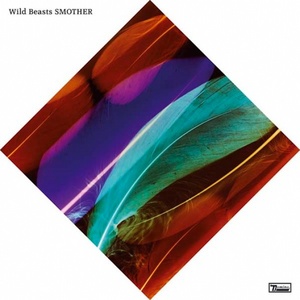
"The trajectory from Wild Beasts’ jittery and dramatic debut Limbo, Panto through the slinky sex grooves of Two Dancers to ultra-refined new album Smother has defied a central convention of modern pop logic: their popularity has continued to grow as their music has increasingly thrown off any regard for what the listener ought to desire. Which, when you consider that the group have become stranger and stranger over that period, is a real achievement in a world where pop choruses rely on hideously overwrought dynamics and radio-friendly production tricks. Playing all three records alongside one another reveals an ongoing process of refinement, of stripping away all excess fat and smoothing away all the edges to leave little but bone, sinew and heart." – Rory Gibb
Read the Quietus review of Smother
7. Katy B – On A Mission

"It is to her credit that, on what could have been an string of perfectly competent ‘On a Mission’ replicas, her debut LP instead sees Katy B moulding her own cogent identity as a singer-songwriter whose songs just so happen to have infectious beats to power them along. Prime examples are the house and funky grooves on ‘Power on Me’ and ‘Why You Always Here’, surely destined to follow in the footsteps of ‘Lights On’ to become future floor fillers. These leftfield textures never stand as a distraction from the songs themselves, which sit perfectly happily in a mainstream pop context. No more is this more applicable than on ‘Easy Please Me’, a track that could easily stand among Ciara or Brandy’s best work." – Lev Harris
Read the Quietus review of On A Mission
6. Cut Hands – Afro Noise
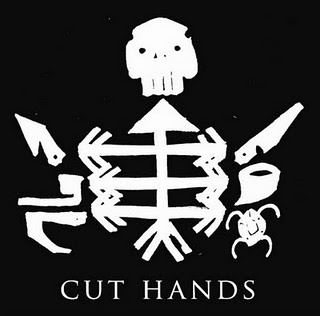
"I wanted to make music that couldn’t be reverse engineered, because I was getting pretty pissed off with so many bands copying the original sound that was using the original template. I was feeling the inbuilt limitations of when music just becomes a set of rules, just conformism, you want to move away from when things get like that. That was one of the reasons for incorporating the djembe, learning from Raoul, this Cuban guy I was friends with while I was living in Madrid. He was a Santeria priest who lived in the Congo for a couple of years, in villages and such, and he’d tell me about all the traditions there. One of them was the music making, the rituals, and how they could make music out of almost nothing – rocks, bits of metal, gravel – making the most intense music imaginable." William Bennett
Read the Quietus feature on Afro Noise
5. Perc – Wicker & Steel

"Album highlight ‘London, We Have You Surrounded’ is stark and pummeling, all metallic percussion, but four minutes through finds its mood suddenly lightens with the arrival of soft, reedy tones in the background. And penultimate track ‘Snow Chain’ could almost be described as pretty, its slow rhythmic churn and flickering melodies bringing to mind the dubbier moments of Demdike Stare’s Voices Of Dust. Its presumed status as interlude matters little in the context of the album; rather than remaining a collection of dancefloor tracks interspersed with mood pieces, Wicker & Steel‘s success is that it convincingly blurs the boundaries between the two. The result is an involving and addictive album-length statement." Rory Gibb
Read the Quietus review of Wicker & Steel
4. The Haxan Cloak – The Haxan Cloak
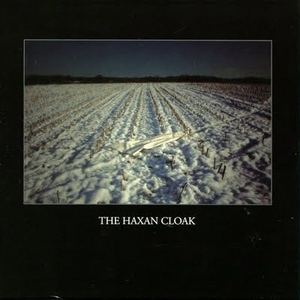
"My dad works for himself from home and he has an office in the garden which has two separate rooms, and he allowed me one of them to use as a studio, so I just brought all my stuff home and set up. Every day I’d go in. I was quite regimented. Even [after signing it to Aurora Borealis] the album wasn’t done. I needed it to be as good as it could possibly be. It took another year of me tweaking stuff. I think I even made two more songs. That’s when all the choral elements came – a friend of mine Mikhail [Karikis] who releases on Sub Rosa, he was a tutor of mine at uni, and we’d always kept in touch afterwards. He was working with these choirs at the time. I knew they had some downtime so I sent him some songs and detailed notes of what I wanted. Because I can’t really write music that well, and especially not for voice, I kind of just drew things. He interpreted that and sent me back these files and I was just astounded." Bobby Krlic
Read the Quietus feature on The Haxan Cloak
3. Tim Hecker – Ravedeath 1972

"All too often it’s easy to overlook non-musical influences when listening to an album. Given that a great deal of music (and music writing) takes quite a singular approach, avoiding multidisciplinary thought in favour of placing sounds within an established canon, it’s wonderful to occasionally come across a record that’s intensely evocative of the world beyond its self-contained universe. Demdike Stare’s recent Tryptych is a great example, its darkened samplescapes summoning a grey and drizzle-soaked – i.e. uniquely British – vision of the occult, as is the volcanic force that regularly tears through the Arctic crust of Ben Frost’s By The Throat. Tim Hecker’s Ravedeath, 1972 is another, right down to its intensely visual title and demonstrative track names (‘The Piano Drop’; ‘Hatred Of Music’)." – Rory Gibb
Read the Quietus review of Ravedeath 1972
2. Azari & III – Azari & III

"Their talisman is undoubtedly soul diva Cédric Gasaida, who is guided through a long night of debauchery by second vocalist and very twisted sister – Fritz Helder. A growling disco sprite, Helder is both dance-floor Zeus and leering constant to Cédric’s mellifluous abandon. In actual fact, the impression given is that it’s Cédric who is the object of said leer. It’s as if rather than for the purposes of hyping the dance floor, his raspy howls are for the benefit of his co-vocalist, undressing the singer from a shadowy vantage point left-of-stage. Whoever it is that menacing gaze is trained on, the interaction between the two is instrumental to their charisma; lending the music momentum, tension, a dynamic sexuality and most crucially, meaning. For example, on the electro-inspired ‘Hungry For The Power’ Fritz’s booming voices embodies the 80s in all its ruthless glory. However, add Cédric’s sexualised interjections and you get the decade’s symbolic melding of power and nookie – ridiculous Michael Douglas-style nookie. Like Helder at one point proposes – as with everything Reaganite, be it business, class, dance music or indeed sex, it’s all about domination." John Calvert
Read the Quietus review of Azari & III
1. PJ Harvey – Let England Shake
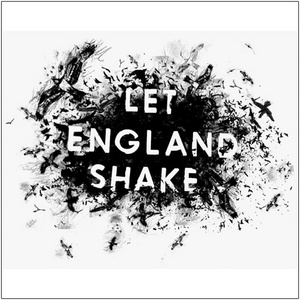
"Much has been made of how different Let England Shake is to White Chalk, her last solo album proper. Of course, musically they don’t sound anything alike, this being full of simple, organic folk melody, the former full of calcified and threatening ambience. But neither is this the return of Polly the Mercury Prize-winning rock star of Stories From The City, Stories From The Sea. Her instrument of choice here is not the relatively unfamiliar upright piano but the relatively easy-to-sling-on autoharp and the not-taken-out-of-its-case-since-the-late-80s saxophone – two instruments she’s never recorded with before. So both albums have benefited from sonic excitement strategies that prevent the music from becoming too slick or easy to process. You’re constantly unsettled by small jagged details as PJH, her trusty band of fellow musicians (John Parish, Mick Harvey and Jean-Marc Butty) and the listener alike are left slightly uneasy, just outside their comfort zone." – John Doran
Read the Quietus review of Let England Shake
- PJ Harvey Let England Shake
- Azari & III Azari & III
- Tim Hecker Ravedeath 1972
- The Haxan Cloak The Haxan Cloak
- Perc Wicker & Steel
- Cut Hands Afro Noise
- Katy B On A Mission
- Wild Beasts Smother
- Death Grips Ex Military
- Prurient Bermuda Drain
- Årabrot Solar Anus
- Laurel Halo Hour Logic
- Sandwell District Feed Forward
- John Maus We Must Become The Pitiless Censors Of Ourselves
- Cold Cave Cherish The Light Years
- Alexander Tucker Dorwytch
- Pinch & Shackleton Pinch & Shackleton
- Mastodon The Hunter
- Oneohtrix Point Never Replica
- Cornershop The Double O Groove
- John Foxx & The Maths Interplay
- My Disco Little Joy
- Frank Ocean Nostalgia/Ultra
- Uncle Acid And The Deadbeats Blood Lust
- Hype Williams One Nation
- Leyland Kirby Eager To Tear Apart The Stars
- EMA Past Life Martyred Saints
- Yob Atma
- Destroyer Kaputt
- Roly Porter Aftertime
- Battles Gloss Drop
- The Fall Ersatz GB
- Zun Zun Egui Katang
- Fucked Up David Comes To Life
- Snowman Absence
- Clams Casino Instrumentals
- Obake Obake
- Elzhi Elmatic
- Aidan Moffat & Bill Wells Everything Is Getting Older
- The Master Musicians Of Bukkake Totem Three
- Thurston Moore Demolished Thoughts
- Wolves In The Throne Room Celestial Lineage
- British Sea Power Valhalla Dancehall
- Bjork Biophilia
- Skull Defekts ft. Daniel Higgs Peer Amid
- Maria Minerva Cabaret Cixous
- Mogwai Hardcore Will Never Die, But You Will
- Byetone Symeta
- Amebix Sonic Mass
- Liturgy Aesthetica
Voted for by all three: Arabrot Solar Anus; Laurel Halo Hour Logic; PJ Harvey Let England Shake; Azari & III Azari & III; Tim Hecker Ravedeath 1972; The Haxan Cloak The Haxan Cloak
Also voted for: Walls Coracle; Amon Tobin ISAM; Colin Stetson New History Warfare Volume 2 Judges; Emika Emika; Dead Skeletons Dead Magick; Wire Red Barked Tree; Brett Anderson Black Rainbows; Zswishenwelt Paranormale Aktivitat; The Horrors Skying; Legowelt The Teac Life; FaltyDL You Stand Uncertain; Kuedo Severant; Space Dimension Controller Pathway To Tiraquon 6; Rustie Glass Swords; Rick Wilhite – Analog Aquarium



